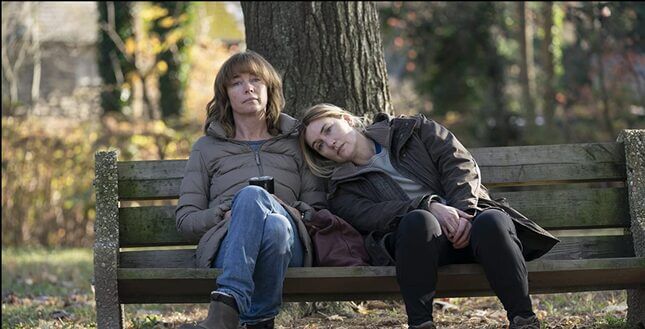

HBO’s latest prestige crime procedural, Mare of Easttown, scratches the itch for gritty, well-produced drama, neatly filling the hole left by other offerings like True Detective but with a much-needed tweak. Instead of being forced yet again to plumb the depths of police work as a proxy for masculinity, viewers are forced to contend with a woman detective struggling against her own personal demons to solve crime. Kate Winslet is the titular Mare of Easttown, a police detective working to solve a grisly murder in a small town where she knows everyone—a handicap but also a help. The first four episodes of the show are very much about police work and the drudgery of investigating crimes that are at their heart, grisly. But, as the program heads towards its conclusion, it is clearer that the show is less about the intricacies of investigation and more so about motherhood—what it means to be a good mother, and the infinite failures and successes that that entails.
Mare, played by Kate Winslet doing blue-collar drag in sweatpants, no makeup and hiking boots, is a detective first, but she is also a mother. As Doreen St. Félix noted in her review for the New Yorker, the show does an excellent job of not glamorizing the work that police do and does not valorize law enforcement in the way so many of these programs often do. “Mare’s profession functions more like a metaphor for worn-down maternalism,” she writes. It’s that maternal nature that Mare so instinctively uses in her work as a police officer that suffuses the entire show. In Easttown, young girls have a habit of disappearing. Other shows would focus heavily on the sensational glamour of the image of the dead girl, and though the first episode lingers on the gruesome nature of the crime in question, the missing and dead girls that haunt Easttown are more like a secondary plot, the engine that drives forth the exploration of how women relate to their daughters, in all of its mess.
-

-

-

-

-

-

-

-

-

-

-

-

-

-

-

-

-

-

-

-

-

-

-

-

-

-

-

-

-

-

-

-

-

-

-

-

-

-

-

-








































